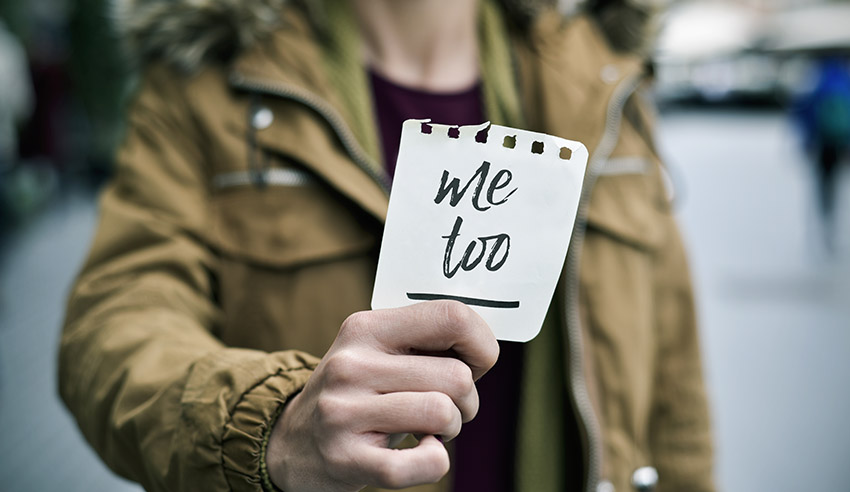Whilst progress has been made in organisations since the #MeToo movement and the release of the Respect@Work report, complaint processes still need work.

As part of the Australasian Association of Workplace Investigators (AAWI) conference, Joanna Betteridge, principal of Betteridge Legal Consulting and special counsel with Justitia Lawyers, hosted a discussion with two lawyers, both experienced in organisational change and inappropriate workplace behaviour.
Kristen Hilton – a former Victorian equal opportunity and human rights commissioner and has a breadth of experience in gender and racial equality, ethical leadership, diversity and inclusion and organisational change – said that, in recent years, employers have started to become more understanding about the commonality of sexual harassment in workplaces.
“One of the things I’ve observed since [the #MeToo Movement] is that there’s been a better understanding from employers in particular about how prevalent sexual harassment is across all workplaces and industries,” she said.
“Some of the real power from the movement came from the discussions of those stories and those experiences and the cumulative effect of that behaviour and that misconduct, and how it not only affected that employee but members of their family and their colleagues.
“It caused some to leave their jobs and they never accomplished what they might’ve wanted to. So, it has a profound effect on people,” Ms Hilton added.
Susan Cunningham is the principal of etika, a consultancy that independently investigates allegations of inappropriate workplace behaviour, and said that people expect more from their employers now than ever.
“People have started to think that it’s okay to have a voice. And it’s okay to have expectations about what may happen if they raise a complaint,” she said.
“I think there’s still people out there who fear what might happen if they bring a complaint forward. And those who also regret having done so. So, there’s still a way to go.”
Earlier this year, following the release of the Respect@Work report, new research undertaken by the Australian Human Rights Commission (AHRC) and led by Sex Discrimination Commissioner Kate Jenkins surveyed almost 59 per cent of ASX 200 companies and provided an in-depth look at company responses to sexual harassment.
Interestingly, while 60 per cent of respondents said that company managers are required to undergo training on good governance and sexual harassment, only 19 per cent of respondents reported that directors undergo training on good governance and sexual harassment.
Organisations need to start having more conversations regarding sexual harassment and feeling safe at work, said Ms Cunningham. Complaint processes also need to be made easier in order to try and avoid “re-traumatizing” someone, she added.
“We shouldn’t have to go through something where we keep retelling our story. We shouldn’t have to go through something that is brutal, where we’re asked questions and asked in a way that’s inappropriate, that suggests that we’ve done something wrong,” she said.
“So, I think having some knowledge of trauma and some knowledge of techniques can help us to make that experience a bit different for people. If we recognise that a trauma experience is possible for anyone and we can recognize the symptoms of it then we can be more compassionate and we can reduce that risk of retraumatizing.”
Ms Hilton agreed, and added that often a lack of consequences for the accused party and a fear of being ostracized or not believed at work can cause victims to leave the workforce altogether.
“It’s not just the initial conduct, it’s what happens when you try to speak out about that conduct. The complaint-making processes that many organisations have are simply not fit for purpose. They don’t take a victim-centric approach,” she said.
Sexual harassment is also a “component of gender inequality”, Ms Hilton explained, which can be a result of poor organizational culture.
“I think it really has opened up a conversation not only about sexual harassment, but also how we actually prevent and respond to the broader conditions that give rise to sexual harassment,” she added.
“Poor culture can sometimes be a proxy for poor capability. There’s quite low capability in terms of complaint functions within a lot of organisations.”
Furthermore, Ms Hilton said that while progress, particularly around the complaint functions in workplaces, has been slow-moving, there has been a shift in the understanding of the frameworks.
“There is an understanding now that sexual harassment is unlawful. So, we are talking about behaviour that is against the law,” she said.
“I think when you have the foundation of a legal obligation, employers tend to take more notice. And increasingly, they’ve been talking to us about what their [risks and obligations] are. That’s been a real motivator around change.
“I think there is still a lot of work to do in organisations around their complaints system, they’re far from fit to purpose,” Ms Hilton added.
Oftentimes, victims are concerned their complaints won’t be kept confidential, that they will be exposed to “victimization” in their workplace and that the process will take a long time and often be “more traumatizing than the conduct”, according to Ms Hilton.
However, Ms Cunningham said that when it comes to advising employers on how to improve their complaint process, advice would generally be welcomed.
“If you do your work subtly and skillfully, what you can do is start to build trust with the organization about the way matters will be dealt with,” she said.
“As an investigator, there’s a place for you to acknowledge the courage people have in raising complaints.
“Be prepared to keep your eyes open and give it to them in a digestible form.”

Lauren is the commercial content writer within Momentum Media’s professional services suite, including Lawyers Weekly, Accountants Daily and HR Leader, focusing primarily on commercial and client content, features and ebooks. Prior to joining Lawyers Weekly, she worked as a trade journalist for media and travel industry publications. Born in England, Lauren enjoys trying new bars and restaurants, attending music festivals and travelling.